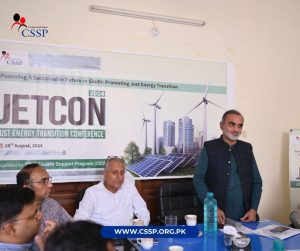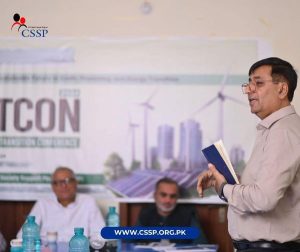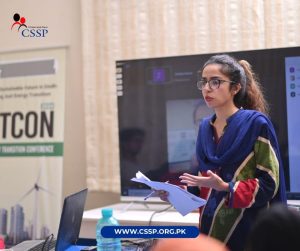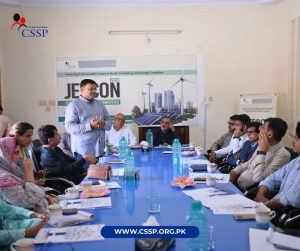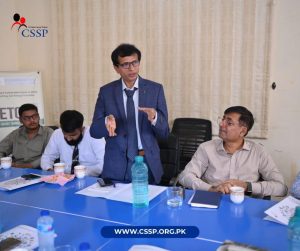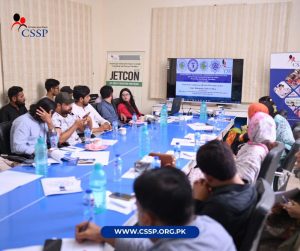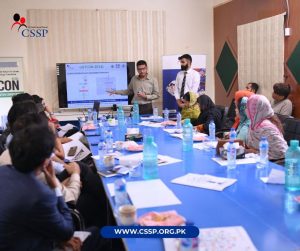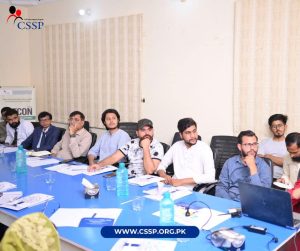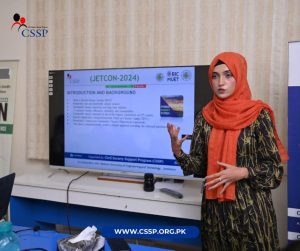Hyderabad, Sindh – August 29, 2024 – The Civil Society Support Programme (CSSP) organized the 1st Emerging Scholars Just Energy Transition Conference (JETCON-2024) in Hyderabad, Sindh. The conference, themed “Powering a Sustainable Future in Sindh: Advancing Just Energy Transition,” featured 22 research papers on diverse topics, including renewable energy technologies, pollution control, and smart cities. Contributions were made by leading academic institutions, including Mehran University of Engineering and Technology, Jamshoro; Quaid-e-Awam University of Engineering, Science and Technology; The Begum Nusrat Bhutto Women University, Sukkur; International Islamic University, Islamabad; Institute of Southern Punjab, Multan; and The Islamia University of Bahawalpur.
Mr. Noor Muhammed Bajeer, CEO of CSSP,in his opening remarks outlined the conference objectives and highlighted CSSP’s role in driving strategic changes within Sindh’s energy sector through collaborations with academia and other stakeholders. He emphasized the importance of bridging the gap between research and practical applications in renewable energy.
Prof. Dr. Asif Ali Shah, Director of the Mehran University Institute of Science and Technology Development (MUISTD), stressed the need for enhanced collaboration between civil society and academia. He emphasized that the partnership between MUET and CSSP is crucial in addressing policy gaps and amplifying academic contributions.
Dr. Ameer Ali Abro, Associate Professor at the University of Sindh, highlighted the conference’s importance in tapping into student innovation and addressing the social aspects of a just energy transition. He stressed the need to integrate social considerations into energy policies to ensure an equitable transition.
Dr. Faheemullah Shaikh, Associate Professor at MUET, discussed the potential of renewable energy and the challenges associated with achieving a complete transition. He emphasized the need for a robust framework to support the phase-out of non-renewable sources and outlined the current challenges Pakistan faces in transitioning to renewable energy.
In his concluding remarks, Dr. Kamleshwer Lohana, Associate Professor at MUISTD MUET, highlighted the conference’s success in promoting meaningful partnerships among universities, industry, and government. He noted that the consolidated recommendations from the conference would be presented to the government and emphasized the need for new academic programs tailored to urban planning and sustainable development.
